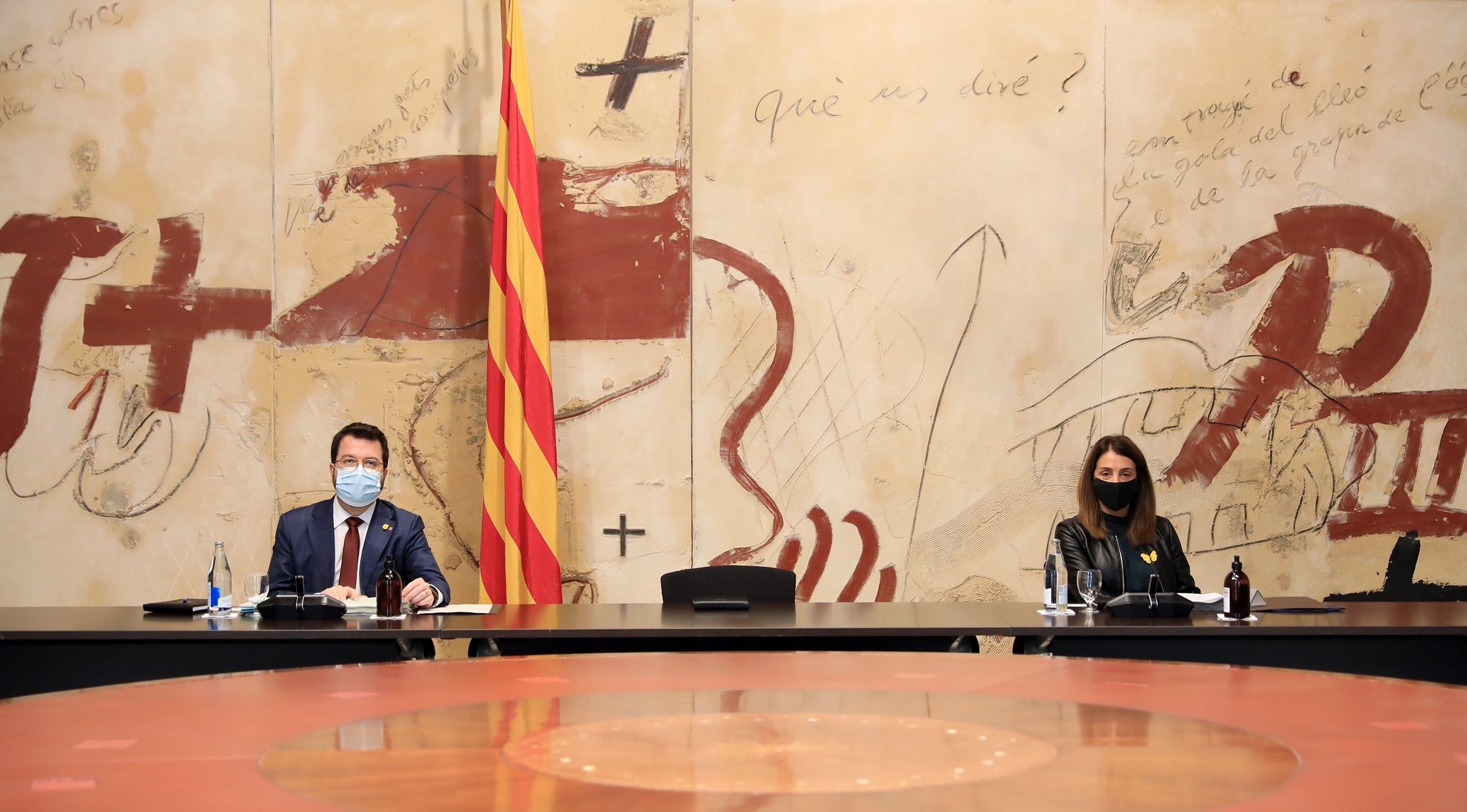The Catalan government has been trapped between the warning it gave about the risks of holding elections on February 14th in the midst of the third wave of the pandemic, and last week's court decision to maintain that election date, provisionally at least. The minister for the presidency, Meritxell Budó, said today that the executive is committed to ensuring that "these elections can be held with complete safety" if in the end they are held in February.
The spokesperson, who admitted her concern at the possible growth of election-day abstention, repeatedly asserted the Catalan executive's commitment to "maximum safety" for voters and for all those involved on election day.
She strongly encouraged the use of postal voting, and recalled measures already announced such as the establishment of time slots and the proposal of rapid Covid tests for the members of the public selected to officiate at the polling stations. These voting table workers will be provided with Personal Protective Equipment for the last phase of the voting period, when those in quarantine - a category estimated to include 160,000 people on February 14th - will be able to come to voting centres to cast their ballots. “We are watching to see how we can further increase these necessary guarantees,” she assured.
VIDEO | Meritxell Budó: "We note that voter turnout dropped both at the recent Portuguese elections and at last year's Basque and Galician votes affected by Covid, and we are working to make the elections totally safe if in the end they are held on February 14th."
Confinement does not apply to campaign rallies
She also went through the measures necessary to ensure the normal functioning of the campaign and the electoral process. Specifically, she announced that, given the need to preserve the right to take part and the right to vote, mobility restrictions cannot be applied on people who assert that they have to cross municipal boundaries to attend an election rally.
To avoid any impediment, she explained that the mobility certificate from the Catalan interior ministry will now have to include this possible reason for travel caused by election events. "The right to political participation is a fundamental right. The government must guarantee the right to take part and that is why this type of travel is valid," she said.
A hurry-up to the High Court
The executive is still waiting for the Catalan High Court (TSJC) to inform it if its legal claim against the government's earlier suspension of the 14th February vote has been formalized. Once this is confirmed, it has to activate its response from legal, health and foreign services. Budó reiterated her words of last week, asking the court once again to make its decision "as quickly as possible", although the TSJC has already set February 8th, in the middle of the campaign and only six days prior to the vote, as its self-imposed deadline.
Budó gave no clue on whether the government intends to call for tougher Covid-19 restrictions, a question which will depend on the conclusions of next Monday's meeting of the Procicat committee. In any case, she recalled that at present there are almost 700 ICU beds occupied by Covid-19 patients and almost 400 by other pathologies; that in the last 24 hours there have been 75 deaths and 3,678 new positive cases. "We are on a kind of plateau, which is unsustainable because the figures are at very high levels," she warned.
Illa: "Zero balance"
In relation to the departure of Salvador Illa from the Spanish health ministry to participate in the Catalan elections as a candidate for the PSC, and the appointment as a new minister of the first secretary of the Catalan Socialists, Miquel Iceta, Budó joked about the significance of having a Catalan minister in Madrid - "we have achieved almost none of the demands that have come from Catalonia", she explained, summing it up as a "zero balance" for Catalonia. "I sincerely hope that Iceta is more successful than Illa in everything related to the measures that are necessary for Catalonia," she said.

